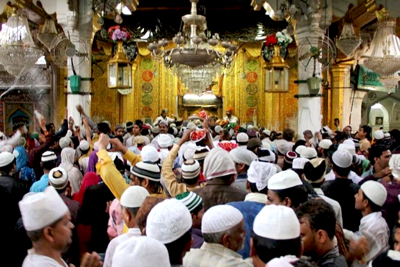New Delhi, Jul 16: India’s Covid-19 tally on Thursday jumped to 968,876 after the country reported highest-ever single-day spike in coronavirus cases registering 32,695 new infections in the last 24 hours. According to the government data, India’s Covid-19 death toll stands at 24,915 after 606 fresh fatalities were reported in the last 24 hours.
The number of recovered patients in India stands at 612,814. On Wednesday, the government said that a record 20,572 patients recuperated from Covid-19 disease in the last 24 hours (between Tuesday and Wednesday), taking the country’s recovery rate to 63.24 percent.
While the Covid-19 tally runs in lakhs in states like Maharashtra, Delhi and Tamil Nadu, other states have been reporting a surge in coronavirus infections. Karnataka has reported over 47,000 coronavirus cases till date but its active cases are more that of Delhi. It has overtaken Gujarat as the fourth worst-hit state in the country. Gujarat’s Covid-19 tally stands at 44,552.
Here’s taking a look at the Covid-19 situation across worst-affected states:
Maharashtra
The state Covid-19 tally jumped to 275,640 on Thursday. As many as 152,613 people have recovered from coronavirus in Maharashtra while 10,928 have died.
Tamil Nadu
With 151,820 coronavirus cases, Tamil Nadu is the state with second-highest coronavirus cases in the country and has witnessed 2,167 coronavirus fatalities. The number of patients who have recovered from coronavirus in the state stands at 102,310.
Delhi
The national capital is the third worst-hit in India with coronavirus cases jumping to 116,993 on Thursday. As many as 95,699 patients have recovered from Covid-19 in the national capital while 3,487 have succumbed to the infection.
Karnataka
The South Indian state has witnessed 47,253 coronavirus cases till date and is now the fourth worst-affected in the country. While 928 have lost their lives to the deadly contagion in the state. Nearly 18,466 patients have recovered from the disease in Karnataka.
Gujarat
Gujarat has seen Covid-19 cases reach 44,552 on Thursday. The state has seen 31,286 people recover from coronavirus while 2,079 people have died.
Uttar Pradesh
The Covid-19 tally in Uttar Pradesh has jumped to 41,383 while the number of recoveries has touched 25,743. The state’s death toll has crossed 1,000.
Telangana
The state’s Covid-19 tally stands at 39,342 coronavirus cases. While 25,999 people have recovered from the disease, the Covid-19 death toll has jumped to 386 in the state.
Andhra Pradesh
The state has reported 35,451 Covid-19 patients till date. While 18,378 people have recovered from the virus across the state, the death toll stands at 452.
West Bengal
As many as 34,427 people have contracted Covid-19 in West Bengal till date. The state has seen 20,680 recover from coronavirus while 1,000 people have been killed.
Rajasthan
The state has reported 26,437 Covid-19 cases till date. Covid-19 death toll in Rajasthan stands at 530 while 19,502 patients have recovered.






Comments
I am sure this Dargah chief will allow shetering cows in his Dargah to make Hindus happy. let this Muzawar also allow cows to stay in his house as guests which will definately give him lots of ad and will be famous.
Mone... Moodbidri.... What do you say about this statement from The Soofi Dargah worshiper....
If prophet is against beef....good...but why should muslims protect them????????
Dhurga is also against Islam...could you stop cheating????
Who will believe even if Muslims are protecting cows,
The trend is, if Muslim have a cow for Milking purpose, Bajrangis will attack on the pretext of cow slaughter
If Muslim is having a cow for agriculture purpose, Banjrangis will attack on the pretext of cow slaughter
Cow is not the cause, but, they just need a reason to attack Muslims,
If the Cow problem is solved, then they will come up with Bakri reason, then Murgi reason, then Machli reason, Its never ending story till RSS is alive
This program is sponsored to you by...modees sangheez.....what has the mushriq Sarah chief to say about baqarah and adhaa?.....
ohh my god this person doesnt know Prophhet SAW said there is no place for Shirk and it is Haram and this guy in his life he is done full of Shirk, Mr. Zainul you are not a right person to give any commmnts without Hadith Quote, better you Shut your mouth
there is no impotant place for dargha in islam
Hey dargaparasthi
Muslims should not protect darghas,
prophet is against darghas.
Add new comment